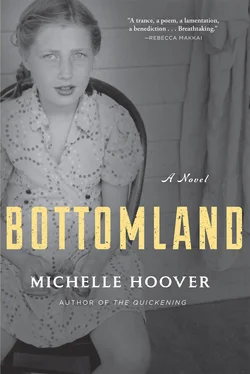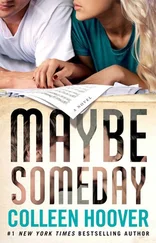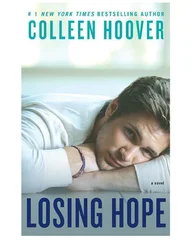“What if they left for no reason,” I said, because I couldn’t think of anything else. I wouldn’t. “But what if now they get themselves into some trouble. What then?”
The woman studied me. “A girl won’t leave without a reason. If it’s trouble you’re worried about, then you’ll know. All girls are the same when it comes to trouble. That’s when they go home.”
I let myself out. At the alley’s end, the factories spilled their workers for the night. It was late again. It always was. The cold ran under my collar, the tips of my ears hard as nickels. I watched for the girls, but I didn’t watch much. I would sleep the night in the alley. My legs just fit across. My blanket was a sorry piece of rough, but I had a dollar in my pocket. It was enough for a bite when the sun broke. I didn’t want to remember the other tickets I’d bought. I didn’t want to dream. When I thought of my sisters now, there wasn’t a door to open. At home, not a hand on my shoulder. Out the window of the train, the fields under the snow would be straight as a sheet. As if such a thing as Chicago never was.
I stopped before the alley crossed into the street. Another set of tracks, when not one of those workers had taken to the alley yet. The tracks ran up next to my own, but turned around. They were small and scraping, flat-footed like. I followed them best I could, around the corner and up a dark path. Around another corner then, where those tracks mixed with dozens of others. Far off under a streetlight, a girl was walking fast. Her hair was a dark cap, a barn coat on her shoulders. Corduroy, that coat was, and hanging on her like a tent.
I ran. Around another corner. Across the bricked and muddy streets. The girl was running now too, but the snow kept her footprints. At every turn, she looked back. Sure enough, with her mouth open and that look on her face. Sure who it was. Through every alley, she ducked off. I spun on my heel. When she slipped around a line of trucks, the street twirled as if pulled by a string. My knees hit the ground, the snow soaking. The many times I’d missed her, I’d never been so close. I caught my breath and stumbled on.
But the next street was a blank. And the one after that. Now the Loop was awash with snowmelt and traffic. The trains clattered above. Every footstep, it was lost. My feet ached with a fire in them. I dropped my hands to my knees, my head spinning. There were alleys every hundred feet. Shop doors and overhangs. Plenty to hide a person. The streetlights over my head, they were some bright. A whole city of them. What was the use of so much light?
“Lee.”
There she was, or the shadow of her. Where she stood across from me on the walk, Esther looked older. That coat big on her shoulders. Her hair was a helmet, her face bone-thin. But there were those freckles, even on her lips. So many, they made her darker than the rest of us. She wiped her cheek.
“I found you,” I said.
She wiped her cheek again. “Don’t be stupid. You didn’t find me, Lee. And that’s what you’ll say when you go back.”
“But I can’t.”
“You didn’t find me. You didn’t find Myrle. You’ll go back because she can’t be found.”
She took a step into the street. She looked wild, shivering. “She can’t,” she said. “Not ever.” And then the words that would undo me. Even she knew that. “I told you not to go, but you did. You owe me.”
I coughed into my hand. My eyes burned, my whiskers were wet. When I looked up, the street was empty. The lights gleamed. I searched the sidewalks, only boxes and crates, piles high as rubbish and no Esther. But there in the snow melt, two footprints. If it hadn’t been for that, I might have thought Esther was only in my head. My ears were ringing some hard. My feet like blazes. I sat in the snow so I wouldn’t have to stand, reached my hand over those tracks. Sure enough, Esther had been there. And she had told me what she wanted. She always did.
But what she said about Myrle, I couldn’t figure it. She can’t. Not ever. Myrle, I hadn’t seen her once.
I woke on a bench by the lake. My head was aching, my blanket wrapped around my chest. I stabbed at my ear. My bag was gone, but I still had my dollar and the tickets in my pocket. The city, it was a low run of traffic. In front of me, the moon showed on the lake. That light seemed a tunnel, promising something different. The sky above was fresh, the stars big as smarts. I could smell fish. A slow kind of wave that sounded thick with ice. At my back, the city was humming. A train in the morning. That way was home. But the water in front of me was wide open. That’s what I liked. Wide was safer. It gave a person a choice. If you could leave parts of yourself behind, the parts you didn’t like. If you could only do that. Since the blast, I’d known a thing or two that was close. At the hospital when I first woke, it was just me and a wool blanket on my chest. Me and the ringing in my head. The rest of the world seemed finished. It was strange to let go like that, even for a minute. Strange but easy, as if I’d never done anything wrong. At home, Father had said it too. Look at this , he’d said, his hand out over the wide open fields to show us.
I reached into my pocket, unfolded a piece of paper. The telegram was soaked. The type no bigger than a pebble. I read the words twice over. come home. Underneath, in blurry ink, it said something that felt worse: she’s been found.
We had to get away. Myrle took the key from Father’s bedside, and I found the rope in the shed. Myrle would test that key herself, but it was me who unlocked the door that night and stepped off the porch. Me who’d tied the rope to the window and ran to the back of the house to help Myrle drop. She clung to the rope like a tired shirt. “Phsst,” I whistled when I caught her legs. “Did you fix the door?” She nodded quick. The rope snapped against the house when we gave it a pull and fell at our feet. Myrle shuddered but I put a finger to her lips. Only the groan of Father sleeping and the trees against the gutters, the wind pitching the fields and the dark far over our heads. Not an inch of the house moved, what with everyone asleep, the doors closed and locked, and the cold enough for blankets. We had our boots and Lee’s old trousers. We had the barn coats. I carried two loaves of bread under my arm and a bag tied to my back, Myrle with another as light as we could have it. I took her hand. We ran across the yard, over the grass until the grass became fields, and out to the pasture. Scrags of corn stuck up here and there, watching us. A dog wailed, one of the Elliots’, and Myrle snapped her head to look. But the Elliot boy was done, I told her. She wasn’t going to go there anymore.
The pasture led to the road along a path the cows had marked with grazing. Myrle walked in front and I followed, my fingers to her back. The moon was low to the ground, large as a house and barn put together. Then it was gone. I couldn’t see Myrle but for the sound of her sniffling. I couldn’t see my feet. But she was with me. Going better than I would’ve thought and not so much a word of worry, though I knew she did. When we came to the road, it was a white dust that showed itself between the dark of the fields like a bridge. We could go for hours before it turned light. We could make our way to Clarksville by next nightfall, some twenty miles, and the train after that. Father always said a person without a moon might wander off and be lost, fall into a ditch, a snake underfoot, or an ankle break, and no one would know to search him out. But that was just poor luck.
“Look,” Myrle said and stopped short. An animal crouched in the dark of the road with its nose up. It jumped when I gave a whistle and vanished. “What was that?” she asked.
Читать дальше












